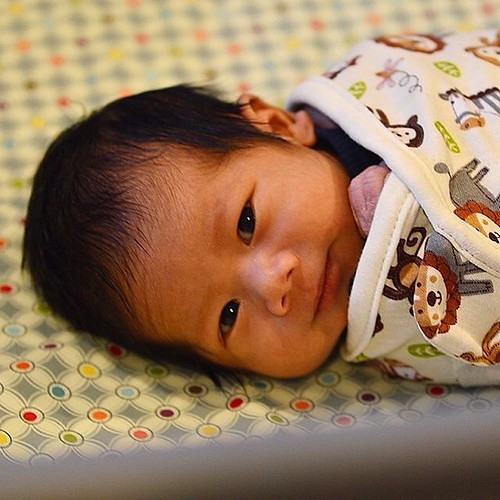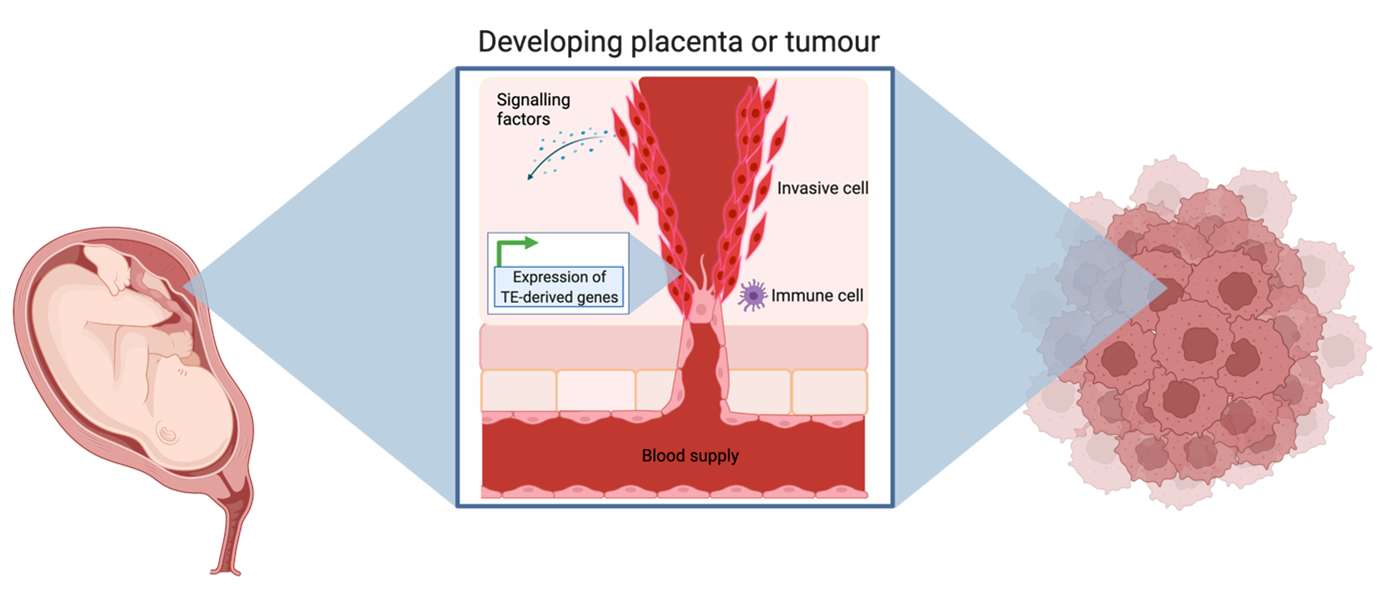Research
Published 29 March 2022Chasing the unexpected link between cancer and pregnancy

Did you ever suspect that the earliest stages of human life may hold valuable clues about cancer?
Put simply, cancer is “rogue” cells dividing rapidly and eventually outcompeting other cells of the body. However, this is a deceptively simple view, as cancer remains one of the deadliest diseases in developed countries. This is largely because we don’t fully understand the fundamental changes that enable these cells to go rogue.
Towards the seemingly endless chase for cures to cancer, Professor Mike Eccles, Dr Erin Macaulay, Dr Chi Lynch-Sutherland and their team at Te Whare Wānanga o Ōtākou University of Otago set out to identify some of the fundamental changes that occur in cancer cells. However, unlike most other cancer researchers they didn’t start with cancer cells, they used a condition that is much more common than cancer – pregnancy!
It may seem surprising to study cancer through pregnancy, since one is the generation of new life, and the other often marks the end of life. However, these two processes share more features than you may think. The similarities to cancer lie in the way that the placenta works. The placenta is a remarkable organ essential to the establishment of human life. During pregnancy, cells of the placenta invade the uterus and remodel the circulatory system of the pregnant person. They also manipulate the pregnant person's immune system to prevent it from attacking the developing fetus. This process resembles how cancer cells manipulate a person’s immune system and invade surrounding tissues to establish a blood supply.

TE-derived genes are expressed in the placenta and in melanoma and other cancers (photo supplied).
To understand invasion in the placenta and cancer, we must first understand what drives cell identity. Our cells all contain the same DNA, which encodes approximately 40,000 genes. However, each cell only expresses a specific cocktail of these genes at any given time. The genes expressed in a cell are controlled by chemical modifications to the DNA. These modifications are called epigenetics (epi = “above”, genetics = “DNA”), and they can turn genes “on” or “off” as required to make a cell behave in a certain way. The research team believes that when this process goes wrong, a healthy cell can become cancerous.
We know that placental cells share many epigenetic modifications with cancer cells. In fact, the placental epigenome (the total of all epigenetic marks) is more similar to the cancer epigenome than any other healthy adult tissue. One striking epigenetic similarity is the activation (“on” switch) of specific DNA sequences, called transposable elements (TEs). These TEs are almost always silenced (“turned off”) in healthy tissues to maintain a healthy state. However, in the placenta, TEs have evolved to carry out important functions that are critical for placental growth, and therefore a healthy pregnancy. This led the team to question: does the epigenetic activation of TEs in the placenta and cancer contribute to the functional similarities of the two tissues? And if so, can we use this information to help detect or treat cancers in a new way?
In this Marsden Fund grant, the research team set out to identify individual TEs that were “turned on” in the placenta, and hypothesised that they were likely to be important drivers of placental development. To do this, they created a new computational tool that enabled them to find TEs that were turned on in the placenta but remained silenced in healthy adult tissues. They called these “TE-derived genes”. Next, they looked at melanoma cells to determine which TE-derived genes became reactivated in melanoma. This enabled them to discover many new genes. These new genes were only turned on in the placenta and melanoma cells i.e. not turned on other normal cells. Now the team plans to test whether these genes are of general importance in cancer.
Having identified these genes, the researchers now hope to utilise them to develop new therapeutic strategies to treat cancer. The direction this research is taking is very exciting for the team, and they are hopeful it represents a big step in the chase for a cure to cancer. The chase is on.
RESEARCHER
Professor Mike Eccles
ORGANISATION
University of Otago
FUNDING SUPPORT
Marsden Fund
CONTRACT OR PROJECT ID
UOO1606
